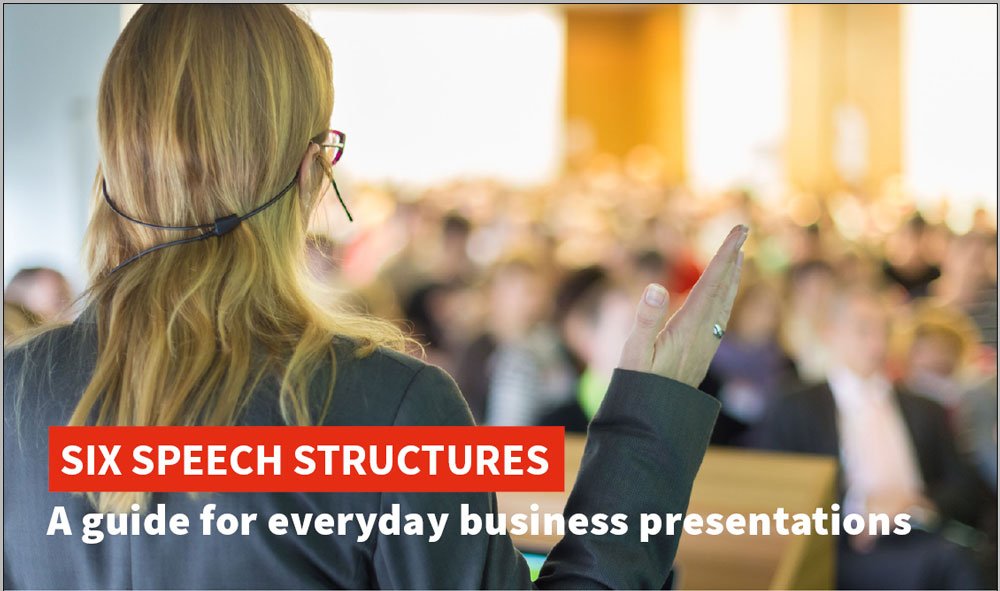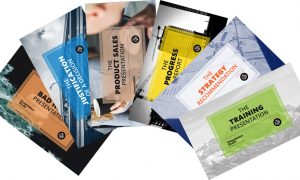5 Really Simple and Cheap Ways to Improve Your Presentation Skills


Presenting better than the norm gives you a clear competitive advantage in your field
If you present slightly better than the norm in your industry, firm or profession, you’ll tend to stand out. If you stand out, you’ll get a reputation for being capable in so many more areas than that. So building better than usual skills is an easy win for every professional, whatever they do and wherever they work.
When we see a good speaker, we tend to think that they’ll be pretty good at all the other elements of their role too. By the same token, if someone ‘crashes and burns’ in front of us, then we’ll probably have less confidence in them, generally, won’t we?
Human beings make judgements about people and their abilities based on the information that they have available to them. We make sweeping generalizations, we make decisions, we infer lots of stuff about someone pretty instantly. If they look confident, we’ll think they are confident. That ability to ‘thin-slice’ evidence, is both a human strength that allows us to make decisions quickly; and a potential flaw, for exactly the same reason; and it’s got a name. It’s called Fundamental Attribution Error.
So if someone’s a below average speaker, whatever they do, they’ll fail to make the most of the opportunities when they’re on their feet. The good news is, of course, that the standards of presenting in most areas of life is pretty poor, so even if you’re just a little bit more confident, engaging and memorable than the norm, you’ll stand out.
Simple ways to build next level presentation skills
When it comes to presenting, the mantra “practice makes perfect” is actually rather misleading. We find that many of the presenters we coach have developed deeply entrenched bad habits from years of practising them without thinking. So yes, practise your presentation skills – but make sure you improve the good habits and get rid of the bad ones. The unbreakable basics that all good speakers need to have before they think about the next-level are:
But once you’ve got the basics, here are five tried and tested tips to help you to improve your presentation skills beyond the norm; and all for free.
1. Learn from the best
Look for every opportunity to watch other speakers – both in your industry and from others far and wide. If you’re asked to speak at a conference, don’t turn up just for your slot. Make the most of the opportunity by seeing as many of the other speakers as possible.
Use YouTube, TED, and the vast resources of the internet to seek out great speakers, study them and learn lessons which you can apply to your own presentation skills. Simple and small lessons sometimes, like this great tip about the importance of facial expressions when conveying meaning to an audience, from Jim Eoin:
Or this beautiful and simple tip about adding impact to your words by understanding your audience better from Simon Sinek:
2. Take lessons from everything
It’s not just presenters who can help you to improve your own skill. Watch the ways actors, newsreaders, teachers, and all other communicators use language, body language, and everything else they have at their disposal to get their messages across. Look out for verbal and physical techniques which you like, and don’t like.
You can find inspiration for your presentation slides everywhere – from advertising billboards to book covers.
3. Analyse your performance
Many great comedians record themselves on stage, and listen back to the recording later. Even those who are already rich, famous and hugely successful. They’re looking for every opportunity to improve what they did, even slightly. Here, comedian Matt Ruby shares how performing stand-up comedy provides him continuous feedback from the crowd – known as “civilians” – and his comedy peers. Peer appeal helps comedians land slots on hosted comedy shows, but audience response remains his best way of refining his craft.
I’m not saying you should record yourself every time you stand up to speak, but the idea is intriguing. And the advances in smartphone and tablet technology makes it so easy to do. And the judicious use of video in rehearsals is a great way of helping you learn the speech, and in polishing your performance.
You don’t have to analyse every presentation you make. But if you do it sometimes, for the important ones, and you find just one thing you’d like to do differently next time, you’ll be improving your presentation skills enormously over time. There are also loads of great bits of software to help you.
4. Debrief your audiences
Whenever you get a chance, speak to people who were in your audience and ask them how the presentation/training/speech was for them. Try to get them talking about specifics: did your structure work? Did they understand a key concept? Did the example help them “get it”? Ask them good, clear questions about the kind of feedback you want, rather than loose, desperate sounding ones that hint at a need for praise. The excruciating ‘Was that OK?’ kind of approach that sometimes makes people feel really uncomfortable. These are the kinds of things I ask:
- What did you like about it?
- What was most relevant, interesting and useful for you?
- What could I do differently or better in future?
- What would have made it even more interesting and/or useful for you?
If you can, do this exercise both with people you know, and with strangers – you’re more likely to get rounded, honest feedback this way. Even better, why not send them a simple google docs questionnaire afterwards that they can fill in and send right back to you in digital form.
5. Analyse both ‘successes’ and ‘failures’
There are lessons available in every presentation we give. The great ones, the ‘meh’ ones and the stinkers. And if we’re honest we all have ‘off’ days. Sometimes we just don’t know why one speech goes well in the morning and another goes badly with the same crowd in the afternoon. It’s a really subtle game we play.
But there are 2 particular skills for the presenters analysing successes and failures:
- Build on your successes – We don’t tend to review these as intensely as the bad days precisely because they went well. Why fix something that isn’t broken? goes the line. That rather assumes that things will always continue to go well and that this ‘success’ was not a direct result of something that you did before, during and even after the event. And even a success could be better couldn’t it, so get into the habit of asking ‘What else could we have done to make it even more effective, engaging, profitable or memorable?’.
- Learn but don’t dwell on your failures – Failure is a little more tricky to deal with. There’s a real temptation to turn it into an autopsy (everybody’s favourite pastime until it’s them on the slab) when nobody has actually died. If things have gone badly just ask yourself what the lessons are and move on, don’t dwell in the gore.What went wrong and whose fault it was is not half as important as how you can make sure you do better next time. As leaders it’s also important to focus on the future and what’s to be done, rather than on the past. Don’t let your people dwell either.
If a presentation doesn’t go so well, spend some time thinking about the true reasons why. There’s usually a deeper, more valuable lesson to learn whenever we make a mistake. Perhaps you ran over your allotted time – only by understanding why you ran out of time will you get the chance to improve. Was it because you didn’t deliver it well on the day, you didn’t rehearse enough, or you were too ambitious with the amount of content you tried to cover?
I gave a new speech at a conference last year, and my favourite habit is to put too much in. I’ve done it for years, and I only had 20 minutes here. I overran by 10 minutes and still had to race to the end and didn’t really make the points that I wanted to make. I was deeply disappointed in my performance in front of friends, colleagues and competitors. I thought about it long and hard and came up with one, clear and important lesson. I was under rehearsed. Simple as that. I thought I could ‘wing it’, and I proved that this time, I couldn’t. So next time, when my reputation is on the line, I’m going to prepare as if errr… my reputation is on the line.
Did it hurt? Yes. Did I think about it a lot? Yes. Did I get critical feedback? Yes. Was it wrong? No. Did anybody die? No. Does it matter? A little bit.
In summary, there are lots of really simple and cheap things you can do to keep on polishing your skills. But the drive to do it is the most important thing that you have. If you decide to do it try some or all of the things I’ve recommended here and look to make regular, incremental improvements in your presentation skills.
There isn’t one piece of advice which can make you the best presenter you can be – great presentations are a combination of hundreds of pieces of knowledge about your audience, your presenting style, and the content you’re discussing. As you get to know these things and yourself better, and follow the five pieces of advice above, your presentation skills will improve.
So practice does make perfect – if it’s accompanied by thought and consideration about the things you’re doing.













John Zimmer
2nd March 2017 at 4:18 pm
Great list of ideas. Simple and practical.
asim shah
5th October 2019 at 9:42 am
These are all helpful and effective tips. An educator should be able to deliver an enthusing and thought-provoking presentation that\’ll engage his/her audience. It is particularly important to establish rapport so that the educator\’s message can get through